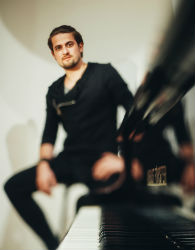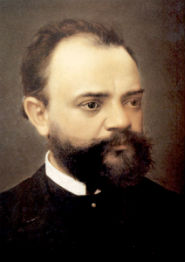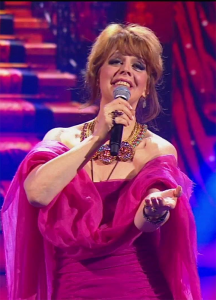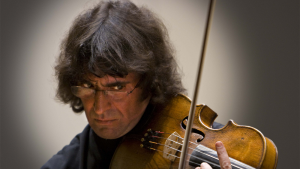VIRTUOZY MUSIC WITHOUT EVGENY SOKOLOVSKY’S BORDERS
 A little more than a hundred years ago, the famous poet said that if stars are lit, it means that someone needs it. Interpreting Vladimir Mayakovsky, it is safe to say that the modern viewer or listener was just waiting for such a star – filled with new meaning, emotions, ideas, fresh perception of musical art, which knows no boundaries and stereotypes. That is why Yevgeny Sokolovsky appeared on the creative horizon. He says that he always dreamed of creating new melodic and airy piano music, saturated with bright colors, experiences, dizzying turns to become a new time, to convey his feelings and in every new composition to give people a whole world of emotions.
A little more than a hundred years ago, the famous poet said that if stars are lit, it means that someone needs it. Interpreting Vladimir Mayakovsky, it is safe to say that the modern viewer or listener was just waiting for such a star – filled with new meaning, emotions, ideas, fresh perception of musical art, which knows no boundaries and stereotypes. That is why Yevgeny Sokolovsky appeared on the creative horizon. He says that he always dreamed of creating new melodic and airy piano music, saturated with bright colors, experiences, dizzying turns to become a new time, to convey his feelings and in every new composition to give people a whole world of emotions.
To music through gymnastics
Childhood and youthful years of Eugene took place in Kazakhstan. There he was born on February 5, 1985 in the city of Pavlodar. The family already had one son, the elder brother of Eugene, Sergey, and later a younger sister, Daria, appeared.
At the age of three, Zhenya was taken to a sports school to do gymnastics. A talented boy showed brilliant results, participated in competitions and won, and then, at 11, his heart was captured by the sounds of music. With his brother and friends, the performer Yevgeny Sokolovskiyon organized a group where Yevgeny had the honor of being a keyboard player. My father helped them write poetry, put them on music and perform with these songs at school concerts and festive events in Pavlodar. The popularity of the group on a local scale was incredible, the whole city knew about the team.
It is worth noting the role of parents in the creative development of Yevgeny Sokolovsky. They believed in his talent and made every effort so that his son took a worthy place in the art world. His father not only always encouraged Yevgeny to music, but also helped him develop professionally – he bought him modern instruments, and was also the first critic of his creations. Eugene> several times tried to move away from the music, but she miraculously returned it and did not let go.
Traction to the art of writing
By the very piano Sokolovsky experienced a real passion. The first love of the instrument happened in kindergarten, but it didn’t happen at an early age to go to a music school. He entered there only at the age of eleven, and even then the boy was taken without much desire, because in January, when he came, the set of children was long over. Eugene was taken to the paid evening department, where he very quickly proved that music is his vocation. In just six months, he mastered the program of two classes of music school and in September immediately moved to the third grade of day-time free education. At a very young age, he presented to the audience three solo concerts with a different program. A little later, he won the city, regional and republican competitions. Already in those years, Eugene realized that he would forever associate his life with music.
Interestingly, he began to develop the skills of improvisation and composition almost immediately, as he sat down at the instrument in a music school. At first they were simple pieces, but after a few years, Eugene began to create pieces for two pianos and perform them with his teacher. The appearance of the synthesizer played a significant role in the creative fate of Sokolovsky. He began to try to compose arrangements with the help of the simplest synthesizers. Perhaps this was the main guarantee of the then popularity of the musical group in his hometown.
New country – new achievements
Once, Yevgeny Sokolovsky was presented with a disc by the famous French pianist and arranger Richard Clayderman. He was very surprised by the tracks he heard, classic works in modern processing impressed Eugene. Such an innovative format could not be better consistent with the spirit of the times. The young musician wrote his arrangements to all the tracks from the disc and played at a solo concert at a music school. At the age of 15, Eugene already did arrangements for classical and other works, therefore, after graduation, there was no choice between composition and mastery.
In 2001, the whole family of Yevgeny Sokolovsky decided to move from Kazakhstan to Russia. For this was chosen the city of Tver. There, Yevgeny brilliantly passed the entrance exams, hitting the admissions office of the Tver Music School with his piano transcriptions of violin works of the cycle “The Seasons” by Antonio Vivaldi. With her teacher-mentor Tamara Shlyapnikova, the musician began a new stage in both life and work. Eugene plunged into school, so 4 years flew in one breath. He managed to declare himself quickly and loudly in the new country. Sokolovsky, a student, three times became the winner of the contest “Young Talents of the Tver Region”, he was awarded the grant of the governor and became a fellow of the Ministry of Culture.



